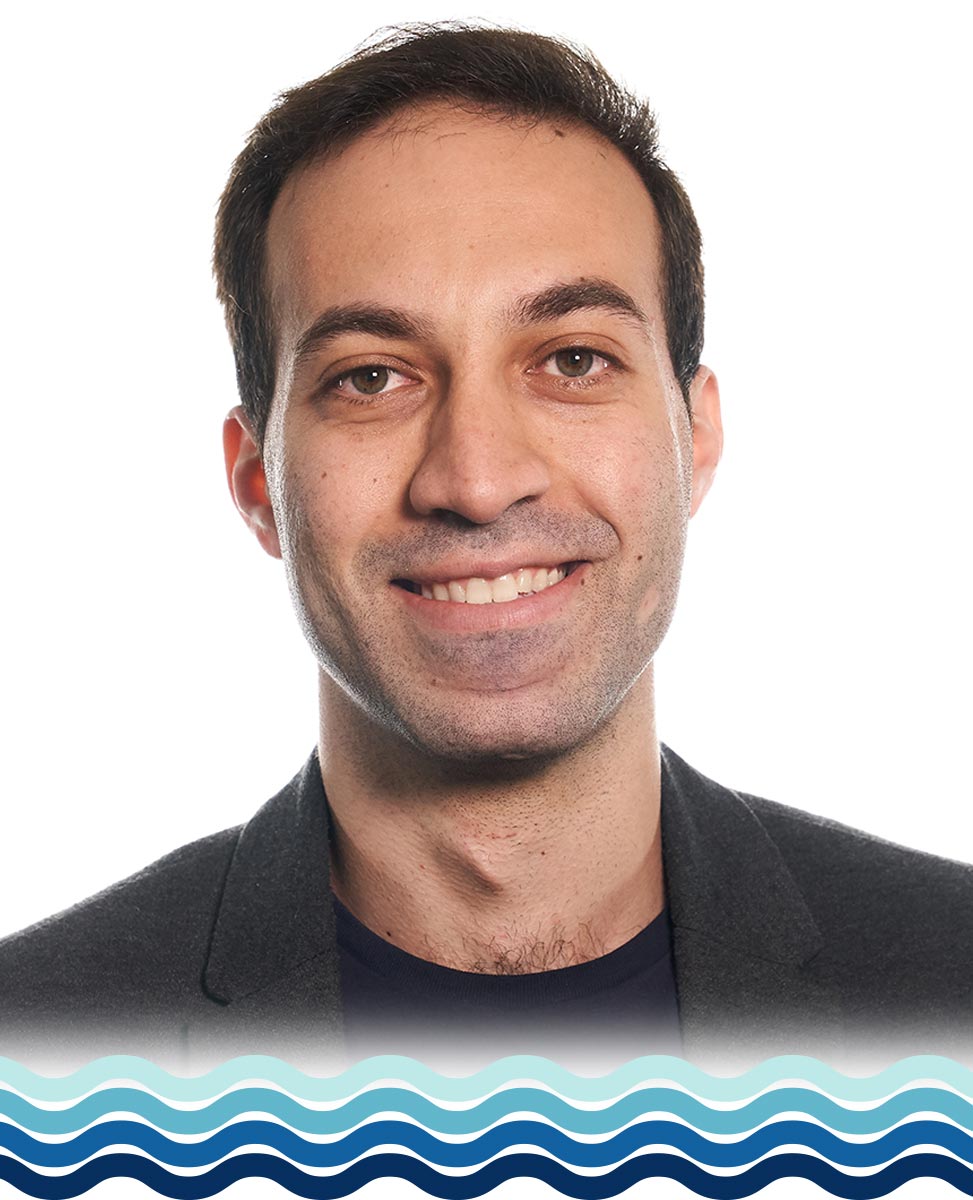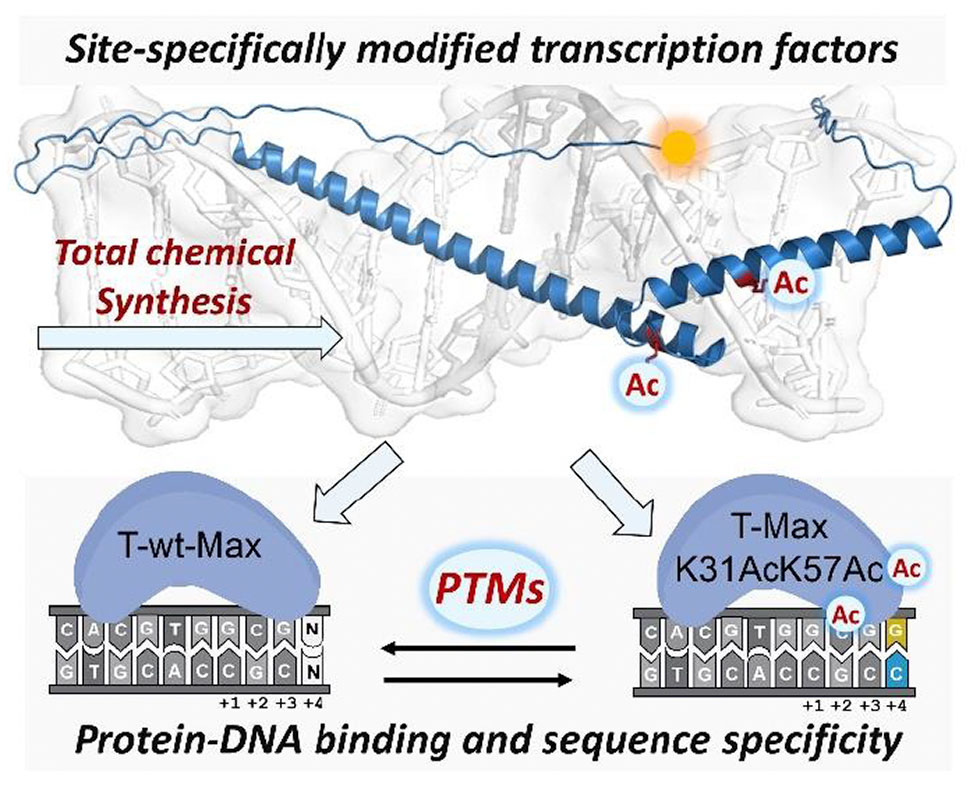Muhammad Jbara
Assistant Professor
Tel Aviv University
Talk Information
Implications and Applications of PTMs
19 June 2025, 02:25pm - 02:35pm, in the Pacific Jewel Ballroom
L66 – Cracking the Code of PTMs on Transcription Factor-DNA Interactions Using Synthetically Modified Proteins

Dr. Muhammad Jbara is an Assistant Professor in the School of Chemistry at Tel Aviv University, Israel. His research focuses on developing innovative chemical biology tools to study transcription factors and design novel therapeutic modalities.
Academic Background
Dr. Jbara earned his B.Sc., 2013, and M.Sc., 2015, magna cum laude in Chemistry from Ben-Gurion University. He completed his Ph.D. in Bioorganic Chemistry at the Technion – Israel Institute of Technology in 2019. His doctoral research, under Professor Ashraf Brik, centered on transition metal-based methodologies for synthesizing complex proteins. From 2019 to 2021, he was a postdoctoral fellow at the Massachusetts Institute of Technology, working with Professor Bradley L. Pentelute on integrating flow chemistry and organometallic palladium chemistry to develop bioactive macromolecules. In 2022, he joined Tel Aviv University as a tenure-track Assistant Professor.
Research Focus
Dr. Jbara's research is dedicated to advancing the chemical biology of transcription factor proteins and designing novel therapeutic modalities for biomedical applications. His work combines synthetic chemistry and chemical biology to explore protein modifications and their implications in health and disease.
Notable Contributions
Dr. Jbara has authored over 50 peer-reviewed publications, contributing significantly to the fields of peptide chemistry and chemical biology. His work has facilitated advancements in protein engineering, drug development, and the study of protein-protein interactions.
Awards and Honors
Dr. Jbara's contributions have been recognized with numerous awards, including:
- Ma’of Prize, Council for Higher Education, 2022
- Israel Science Foundation Personal Research Grant, 2023–2027
- Israel Science Foundation Personal Equipment Grant, 2023
- Ministry of Innovation, Science and Technology Research Grant, 2024–2027
- IUPAC-Solvay International Award for Young Chemists, 2020
- Rothschild Postdoctoral Fellowship, 2019–2021
- VATAT Postdoctoral Fellowship, 2019–2021
- Fulbright Postdoctoral Fellowship, 2019
- Israel Chemical Society-Uri Golik Prize for an Excellent Graduate Student, 2019
- Wolf Prize for Outstanding Ph.D. Student, 2018
Professional Engagements
At Tel Aviv University, Dr. Jbara is actively involved in teaching and academic service. He coordinates courses such as Advanced Topics in Peptide and Protein Chemistry and Advanced Organic Chemistry for both undergraduate and graduate students. Additionally, he serves on various committees, including the Master's Degree Teaching Committee and the Faculty Admissions Committee for Bachelor's Degree students.
Through his innovative research and dedication to education, Dr. Muhammad Jbara continues to make significant contributions to the field of peptide science and chemical biology.
L65
Cracking the Code of PTMs on Transcription Factor–DNA Interactions Using Synthetically Modified Proteins
School of Chemistry, Raymond and Beverly Sackler Faculty of Exact Sciences, Tel Aviv University, Tel Aviv, Israel
Chemical protein synthesis provides a powerful means to prepare novel modified proteins with precision down to the atomic level, enabling an unprecedented opportunity to understand fundamental biological processes1. Of particular interest is the process of gene expression, orchestrated through the interactions between transcription factors (TFs) and DNA. Here, we combined chemical protein synthesis and high-throughput screening technology to decipher the role of post-translational modifications (PTMs), e.g., Lys-acetylation and Ser-phosphorylation, on the DNA binding activity of Max TF.

We synthesized a focused library of singly, doubly, and triply modified Max variants including site-specifically phosphorylated, acetylated, and fluorescently tagged analogs, for the first time2,3. The resulting synthetic analogs were employed to decipher the molecular role of Ser-phosphorylation and Lys-acetylation on the DNA binding activity and sequence specificity of Max. We provide evidence that the acetylation sites at Lys-31 and Lys-57 and the phosphorylation at Ser-11 significantly inhibit the DNA binding activity of Max. Furthermore, we found that the acetylation mark can alter the binding specificities of Max toward certain sequences flanking its consensus binding sites. Our work provides insight into the hidden molecular code of PTM–TF and DNA interactions, paving the way to interpret gene expression regulation programs4.
1. Harel O, Jbara M. Angew. Chem. Int. Ed. 2023, 62, e202217716.
2. Nithun R, Yao Y, Lin X, Habiballah S, Afek A, Jbara M. Angew. Chem. Int. Ed. 2023, 62, e202310913.
3. Nithun R, Yao Y, Harel O, Habiballah S, Afek A, Jbara M. ACS Cent. Sci. 2024, 10, 1295–1303.
4. Lin X, Harel O, Jbara M. Angew. Chem. Int. Ed. 2024, 63, e202317511.

